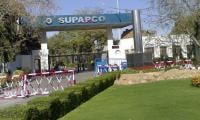army. But the army is trained on professional lines. Its ethos is different and no one can interfere in the chain of command. Divisional and corps commanders do not interfere in regimental appointments. That is the prerogative of the regimental commander.
But the police we deal with differently…favourites picked for choice postings, Station House Officers recommended by politicians or other ‘influentials’, chief ministers (this is especially true of Punjab) interviewing and selecting District Police Officers. When the office of inspector general is treated as a post office, the IG not master in his own house, how on earth do we expect the police to perform as well as the army? Speeches and committee meetings won’t solve this problem.
The army chief declares in Karachi that appointments in the Karachi and Sindh police should be on merit and not on the basis of sifarish or personal likes and dislikes. In KP the IG (reportedly) is allowed a free hand. But since the army is now taking the major decisions – ‘soft coup’ and all that – and Gen Raheel is very much the power behind the civilian throne, shouldn’t the army command ensure that the principle of no political interference in the police be applied across the board? Army and ISI are just one front in this war. Anti-terrorist efforts will fall short unless all the police forces, down to the district and thana levels, are fully engaged in this fight.
Isn’t it high time also that the police were freed from unwanted protocol and VIP duty? The situation today is that while terrorists can strike at will and people at large are defenceless the so-called VIP class suffers from over-protection. Which US president or British prime minister has a thousand policemen posted outside his private residence? Sons and daughters go around with long escorts. Second and third begums enjoy official security. Remove official security from private residences and I bet rulers will become more alive to the terrorist threat.
What else should be done? Two models before us can serve as examples: (1) how the police chief in Indian Punjab, KPS Gill, was instrumental in crushing Sikh militancy after the storming of the Golden Temple in Amritsar; and (2) the way Naseerullah Babar, then interior minister, spearheaded the operation against militancy and terrorism in Karachi in 1995.
Without going into other details, suffice it to say that Gill was given complete authority. A Sikh himself, he dealt with the Sikh insurrection with a ruthless and merciless hand. Every method, including encounter killings, was permissible. Thus it was that the problem was licked.
Naseerullah Babar, overseeing the operation himself, gave the Karachi police a free hand. Intelligence support came from the Intelligence Bureau, not ISI and MI. Thus it was a civilian show from first to last but to date the only operation in Karachi which succeeded, breaking the back of terrorism and bringing a semblance of peace to the city…a process completely reversed when Benazir Bhutto’s government was dismissed (and after the elections Nawaz Sharif became prime minister).
When the tide turned police officers who had distinguished themselves in the Babar operation were picked up by the very militant outfits they had fought…and tortured and killed. In other words, the state was unable to protect its own. When this happens how do you fight anything?
So today Pakistan’s problem is to find for each province one KPS Gill or one Naseerullah Babar. The present lot won’t do, having given enough evidence of their lack of capacity and ability. They may be good for other things but defeating terrorism is just not their cup of tea. This doesn’t mean we have a national government or an army takeover…only this that operational command should be in the hands not of photo op specialists and speech-makers but men of decision and action.
In other words, for the police freedom from Raiwind and freedom from Bilawal House. Balochistan calls for something else. There we have too much of military interference. The chief minister should not have the army or its agencies breathing down his neck all the time.
Is the CIA or MI6 involved in any real-estate business? Here the IB is up to its neck in a huge housing scheme in Islamabad and there is no one to put an end to this nonsense. Even the army has to make up its mind: what comes first, the irresistible charms of real estate or the demands of the war against terrorism. As if the full-page ads selling the dreams of villas in Dubai weren’t enough, there is DHA Karachi doing equally well, selling the charms of various projects. If a tenth of our zest for real estate were ploughed into our war against terrorism we would probably get to see better results.
This is going to be a long struggle and more blood will be spilt before it is over. The lessons, however, should be clear: half-measures will not do; layers of security for the ruling class will not do; and the benefits of empty gestures are limited. Of initiative and audacity we certainly need more but it is not going to come from heroes of the spoken word, guftar ke ghazi, who quickly become back-seaters when it comes to actually doing something.
Email: bhagwal63@gmail.com
According to Chanakya, secret of strong nation lies in ability to protect its citizens
Rapid economic progress was made possible under Modi's leadership if not ‘Modi's guarantee’
Pakistan was considered water-abundant country, with per capita water availability being 5650 cubic meters in 1951
Shrine of Mian Mir.—TheNews/FileMy history professor once referred to a theory that says the developmental telos of...
If Pakistan does not take prompt and decisive action, it could find itself at forefront of world's first water conflict
Please note that dam survey team from World Bank had proposed building of this dam in 1955







